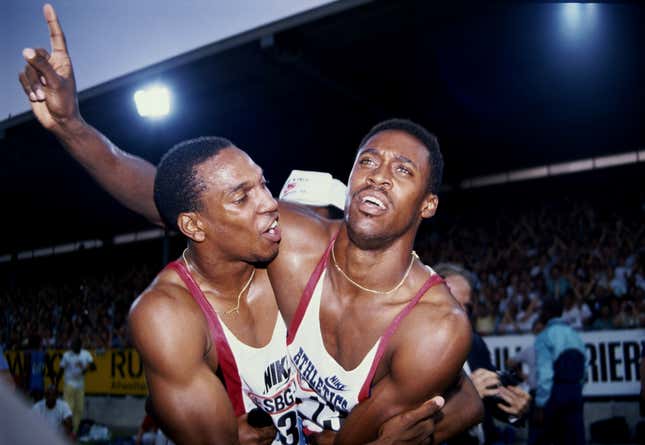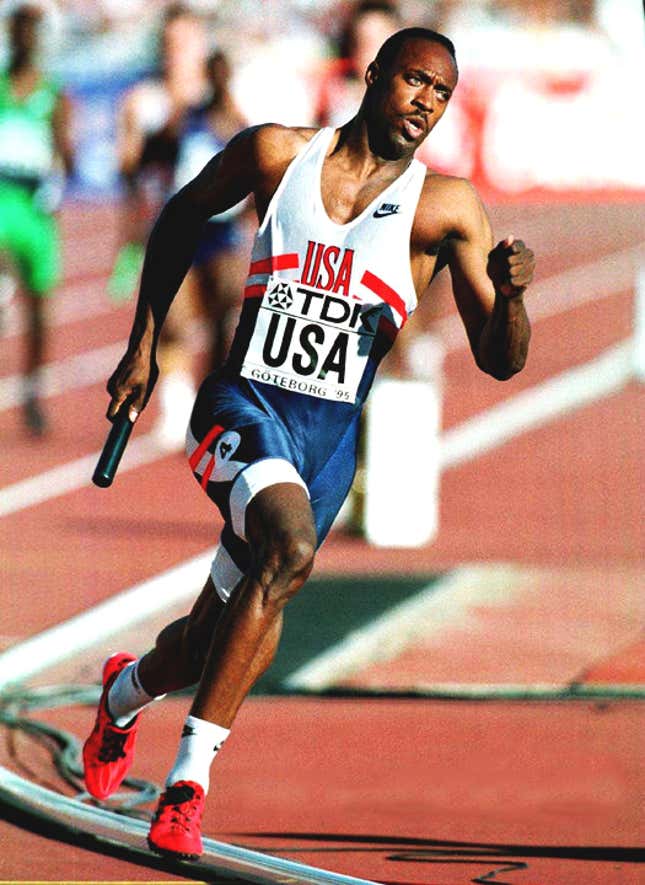
Long before LeBron James, we had Olympic track star Butch Reynolds as a highly visible favorite son in my hometown, Akron, Ohio. Not only are both at the top of their game, they also serve as role models who possess strong family values, community pride, character and the solid work ethic that typifies the Rubber City, whose tire factories literally put the world on wheels.
That’s partly why so many local residents — along with fellow athletes and sports fans across the globe — have always believed that Reynolds was innocent of the doping charges that derailed his career. The Hall of Famer’s life and challenges are chronicled in “False Positive,” a new documentary that aired at 7 p.m. Tuesday, June 11, 2024, as part of the 15th anniversary season of ESPN’s “30 for 30” series.
“False Positive,” directed by Ismail Al-Amin and co-produced with Bradford Young, Philip Aromando, Marquis Daisy and Jonathan Hock, will stream on ESPN+ after its debut.
“Honestly, I didn’t really know if Butch was a guilty athlete or not,” Al-Amin, also of Akron, said. But as he conducted extensive research and pored over the evidence, Al-Amin was convinced this was a story that needed to be told.

Track legend Jesse Owens inspired Reynolds to attend The Ohio State University, where he broke records and brought home NCAA titles. Reynolds also gained international acclaim and endorsements, most notably breaking a 20-year world record in the 400-meter dash in 1988. He also won gold and silver medals at the Summer Olympics in Seoul, Korea, that year.
His star was rising, but dimmed when the International Amateur Athletic Federation (IAAF) accused him of using performance-enhancing drugs in 1990 and suspended him for two years. Known then as the “world’s fastest man,” Reynolds countered that he would never take steroids and that he didn’t need to use them.
“It was a very lonely time,” Reynolds recalled after the recent premiere of “False Positive” at the Cleveland International Film Festival.
Through the ups and downs of his life, the documentary explains how urine samples were bungled, the depth of international politics in sports and the effect of all this on other athletes. Viewers also see how legal expenses drained earnings from endorsements, leaving Reynolds broke and in tears when the house he had purchased for his mother went into foreclosure.
“My upbringing and having that spiritual foundation coming up, that’s what kept me strong, kept me together,” he said. “It was definitely God.”
Nevertheless, he acknowledged the difficulty in fighting against anger and bitterness as he battled to clear his name and his family’s name at the behest of his grandfather.
“After three months of living with that type of mindset. I said, ‘No this is not a world record holder. This is not an Olympic gold medal winner. This is not what you stand for, and this is not what my parents stood for. So, Butch, change your mindset,’” he said.
He also drew upon the examples of Jesse Owens and Muhammad Ali. “These guys had big shoulders,” he said. “They had a positive outlook on life no matter what negativity they saw or had to deal with.”
Reynolds is grateful that he has cleared his name through U.S. courts and athletic bodies. However, the IAAF (now known as World Athletics) has yet to fully acknowledge legal and financial rulings in his favor. And Reynolds considers this the final lap of his race for justice – and to clear the Reynolds name once and for all.
Yanick Rice Lamb is a journalist, author and professor at Howard University. She also briefly discusses the Great Migration in “False Positive.”

